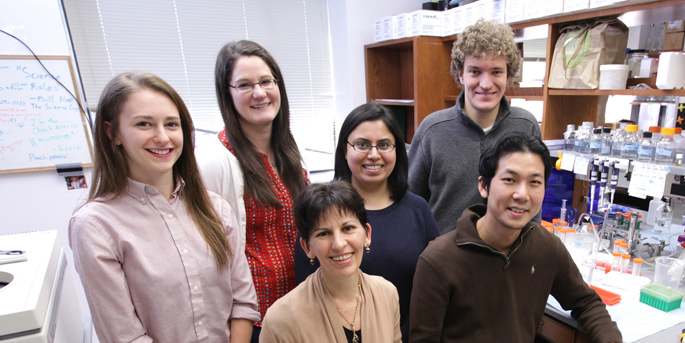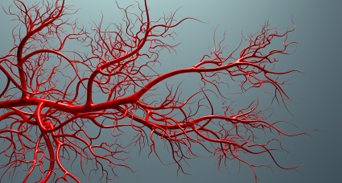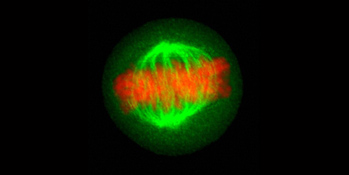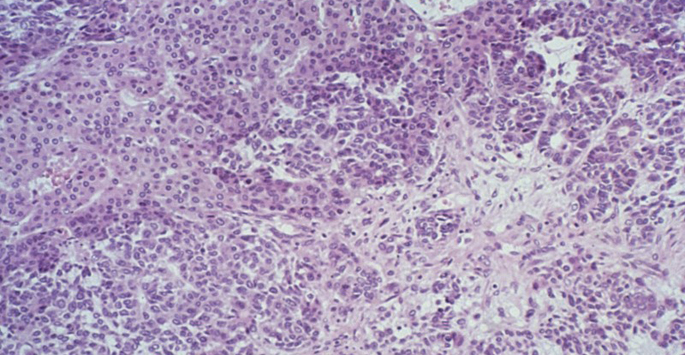Cancer
-

Southwest Airlines provides Vanderbilt patients with free flights
by Jerry Jones Vanderbilt University Medical Center is one of 73 nonprofit hospitals and medical organizations selected for the Southwest Airlines 2014 Medical Transportation Grant Program. It is the fourth year Vanderbilt has received a Southwest transportation grant. The grant is administered by Vanderbilt LifeFlight and will help approximately 60… Read MoreMar 10, 2014
-

Cancer cells combine tools to increase invasiveness
Two features of invasive cancer cells — invadopodia and exosomes — are linked together, Vanderbilt University investigators have discovered. Read MoreDec 19, 2013
-

Targeting tumor “supply lines”
A metabolic enzyme plays a crucial role in vascular development and may be a good target for cancer therapies. Read MoreDec 18, 2013
-

Cell changes en route to stomach cancer
Molecular characterization of pre-cancerous changes in cells lining the stomach could point to lesions with a greater risk of progression to cancer. Read MoreSep 26, 2013
-

VU study brings genome’s ‘dark matter’ into light
Using technology he helped develop, Vanderbilt University scientist Bryan Venters, Ph.D., has shed new light on the “dark matter” of the genome and has begun to explore a possible new approach to treating cancer. Read MoreSep 19, 2013
-

Fishing for new anti-cancer drugs
Vanderbilt investigators used an in vivo screen in zebrafish to identify a potential new anti-cancer drug. Read MoreSep 18, 2013
-

Cancer nanomedicines on target
Therapeutic nanoparticles may offer a powerful new way to image and treat cancer at the same time. Read MoreSep 13, 2013
-

VU study identifies DNA changes in drug-resistant cancer cells
Vanderbilt investigators have combined next-generation sequencing technologies and bioinformatics analyses to screen for genome-wide genetic mutations associated with drug resistance in a series of lung cancer cell lines. Read MoreSep 12, 2013
-

Motor protein revs up cell division
A motor protein that helps drive cell division may be a promising new target for cancer therapeutics. Read MoreJul 29, 2013
-

Factor’s yin-yang tumor effects
A factor produced by most malignant cells can both promote and inhibit tumor growth – an insight that is critical to using cancer drugs developed to block this factor. Read MoreJun 10, 2013
-

Leukemia & Lymphoma Society honors Ohi’s research
Puck Ohi, Ph.D., assistant professor of Cell and Developmental Biology, has received the Leukemia & Lymphoma Society SCHOLAR award for his research on the role of enzymes that affect cell division, which has implications for treating cancer and blood disorders like leukemia and lymphoma. Read MoreJun 6, 2013
-

Cancer studies reveal new genetic variants
The future of cancer is becoming clearer. And it’s not looking so good for cancer. Read MoreApr 4, 2013
-

Fingers and toes: joint forming factor
The gene Has2 participates in signaling that is important in developing fingers and toes, and may have relevance for cancer development. Read MoreApr 1, 2013
-

Patient’s cancer journey inspires fund for research
There’s a long list of Vanderbilt faculty and staff who made an impact on Terri and Steve Voland when Steve was treated at Vanderbilt-Ingram Cancer Center for a rare type of cancer in his neck and spine. Read MoreMar 21, 2013
-

New drugs a good BET for brain cancer
A novel class of drugs that target “BET” proteins may have broad utility for treating genetically diverse brain tumors. Read MoreMar 20, 2013
-

Vaccination key to preventing HPV-related cancers
Vaccinating young males and females against several types of human papillomavirus (HPV) could dramatically reduce the incidence of HPV-related cancers worldwide, according to Douglas Lowy, M.D., deputy director of the National Cancer Institute. Read MoreFeb 28, 2013
-

Factor CITED in pediatric liver cancer
Vanderbilt researchers report that they have found a factor involved in the persistence of embryonic cells implicated in childhood liver cancer. Read MoreFeb 20, 2013
-

Seminar to help patients cope with impact of cancer treatments
Cancer patients undergoing some forms of chemotherapy often lose some or all of their hair, as well as eyebrows and eyelashes. Read MoreFeb 7, 2013
-

Brain tumor TIP reveals new target
The protein TIP-1 appears to be a novel prognostic marker for glioblastoma and may be a good therapeutic target for disrupting tumor-driven blood vessel development. Read MoreFeb 4, 2013
-

For Cancer Center’s Joyce, volunteering comes naturally
Nearly every week since 1988, cancer patients and families visiting Vanderbilt University Medical Center have been able to count on a comforting routine — at least one morning per week they are greeted by the same smiling volunteer who dispenses a dose of friendship along with coffee, snacks and advice about how to navigate the sprawling Medical Center campus. Read MoreJan 31, 2013